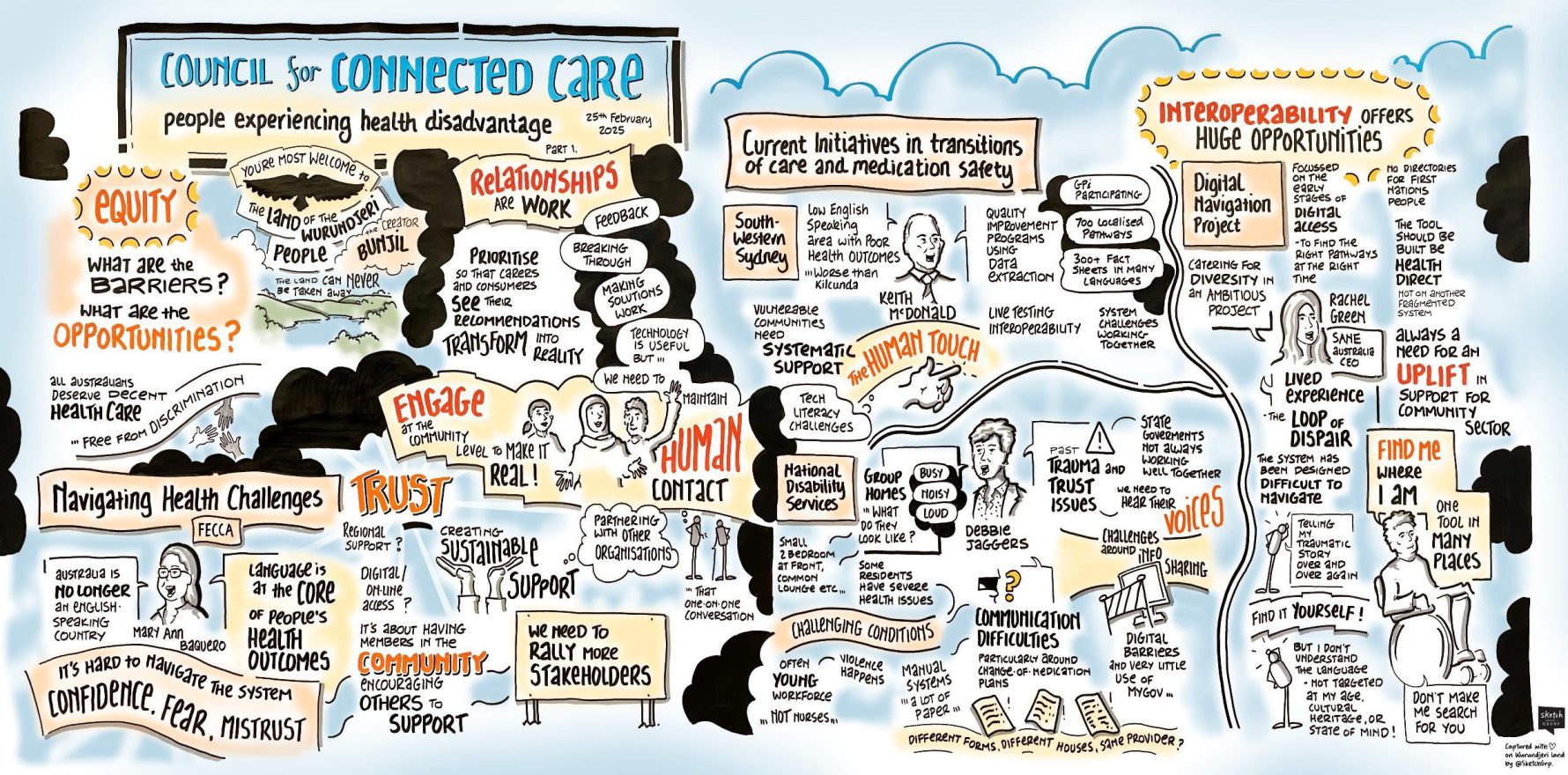By God, we’re almost Scandinavian in our digital maturity. The latest Black Book also details the merits of local EHR vendors.
Australia has come in ninth on a global list of countries ranked by healthcare interoperability.
The latest Black Book of Global Healthcare Information Technology is an independent study developed by Black Book Research, evaluating comparative electronic health record use, national infrastructure maturity, and real-time health data exchange effectiveness across 18 high-income countries, using both quantitative data and stakeholder sentiment.
Interoperability rate is defined by Black Book as “the percentage of healthcare providers such as hospitals, clinics, pharmacies, laboratories, and general practitioners actively exchanging patient data through standardized digital systems”.
Estonia is the global benchmark with an IR of 99.1% thanks to near-universal data sharing among healthcare providers, through the Estonian Health Information System and secure, real-time exchange via the national X-Road platform.
Finland (98.9%), Denmark (98.2%), Sweden (95.4%), New Zealand (90.3%), Singapore (90.1%), the Netherlands (88.9%) and Norway (87.3%), rank above Australia which was awarded an 85.7% interoperability rate.
“Australia’s adoption of EHRs has been slower than some other developed nations, but significant progress has been made in the last few years,” said the report.
“The Australian government has implemented a national e-health strategy, including the My Health Record system, which was launched in 2012.
“By 2024, nearly all Australians have a digital health record, with improvements in data sharing and accessibility.
“Digital health applications, including telehealth, remote monitoring, and mobile health apps, are becoming increasingly common in Australia, especially after the [covid] pandemic accelerated their adoption.”
The report highlighted the Australian government’s announcements of $643 million over the next four years for the modernisation of MHR and improved data sharing, and an additional $75 million to enhance electronic prescriptions (e-scripts) and digital medicines initiatives, streamlining the prescription process to improve patient safety and reduce medication errors.
“Oracle Health, previously known as Cerner, has a significant footprint in Australia, providing EHR systems to hospitals and healthcare facilities nationwide,” said the report.
“Altera Digital Health, formerly Allscripts, has also made substantial contributions, notably supporting South Australia Health in a large-scale project and implementing a cloud-based EHR solution in the Gippsland region.
“MEDITECH has expanded its global reach by deploying its Expanse platform in various Australian healthcare organisations, ensuring comprehensive patient data management.
“Additionally, InterSystems has implemented its TrakCare system, a unified healthcare information platform, in multiple institutions across Australia.”
Countries ranked worse than Australia included the UK (80.5%), Canada (74.6%), Germany (70.2%) and the United States (59.8%).
The report also details the top 10 global EHR vendors.
Top of the heap is Oracle Health (formerly the Cerner Corporation), which has established “significant footholds” in Canada, the UK, the UAE and Germany, where it provides EHR systems to multihospital networks and national healthcare organisations.
In 2018, Alfred Health selected Cerner to implement its EHR system, which the Black Book called “a significant win for the US-centric vendor over its local and international competitors”.
Related
Among those local competitors was Telstra Health, which lost out on the Alfred Health contract because, according to the Black Book, it “lacked the large-scale hospital EHR deployments necessary to compete with Oracle Health’s established reputation in Australia”.
Epic Systems is close on Oracle’s heels and now has a toehold in Australia after signing a 2023 deal with NSW Health to implement its EHR system across 191 hospitals. It also is in the Royal Children’s Hospital in Melbourne.
According to the Black Book, Epic was helped by the 2009 HITECH Act in the US, which incentivised healthcare providers to adopt EHRs through government funding.
Its global footprint now includes the UK, the Netherlands, Finland, Saudi Arabia, the UAE, Switzerland and Singapore, as well as its deal with NSW Health.
Third on the list is Dedalus, which has a stronghold in Europe as well as a partnership with Amazon Web Services.
Meditech is fourth. “The platform has gained traction in Australia, Singapore and Japan, aligning with the region’s focus on telehealth and mobile healthcare solutions,” said the report.
The top 10 is filled out by Brazil’s MV Sistemas (5th), Germany’s Compugroup Medical (6th), Trubridge (7th), InterSystem’s TrakCare (8th) which is gaining ground in Australia, Philips Tasy (9th) – which recently entered a multi-year partnership with St Andrew’s Toowoomba Hospital in regional Queensland; and, Altera Digital Health (10th).
“In Australia, Altera has established itself with significant projects like South Australia Health’s cloud-based system rollout,” said the Black Book.
“However, its struggles in North America might lead Australian healthcare providers to reconsider their confidence in the company’s ability to deliver reliable, future-ready solutions.
“Competitors like Epic … pose a significant threat to Altera’s market share in the region.”
New Zealand-based vendor Orion Health also gets a mention.
“In Australia, Orion Health’s Digital Care Record and Integrated Digital Care Record (IDCR) projects have been instrumental in providing consolidated views of patient data to improve care coordination,” said the report.
“However, growing competition from global players such as Cerner (Oracle Health) and Epic, coupled with concerns about the scalability and interoperability of Orion’s solutions, has resulted in a decline in customer confidence and market share.
“This trend is further exacerbated by the company’s limited success in securing new contracts in the region.”
Practice management software vendor Best Practice was praised by the report for maintaining its “dominance over Epic in Australia”.
Best Practice was succeeding because of “affordable solutions for general practices and small healthcare facilities”, and “a strong focus on localised needs, such as compliance with the My Health Record initiative”.
Best Practice’s main competitor MedicalDirector “distinguished itself” by offering “deep insights into the needs of Australian healthcare providers, supported by an Australian-based team available 362 days a year via phone, email, or online chat”.
“Additionally, they maintain their own independent medicines information database, AusDI, updated daily to ensure access to the latest drug information for safe prescribing practices.
“Collaborations with over 20 leading industry partners further allow for tailored software configurations, enhancing patient care and operational efficiency.
“These differentiators position MedicalDirector as a leading EHR provider in Australia, offering versatile, compliant, and well supported solutions that cater to the diverse needs of healthcare professionals.”
MediRecords gets a mention for being the first fully cloud-based EHR and PMS in the country.
“By supporting remote access, the platform is well-suited to the growing demand for telehealth services, enabling video and phone consultations, as well as full virtual clinic management through its web interface and mobile app,” said the Black Book.
“Another strength of MediRecords lies in its focus on interoperability and compliance with national healthcare standards. The platform natively supports SNOMED Clinical Terms, ensuring seamless integration with other systems while meeting Australia’s eHealth compliance requirements.
“This focus on standardisation positions MediRecords as a future-proof solution that can easily adapt to advancements in analytics, precision health, and artificial intelligence.
“By combining cloud-based accessibility, telehealth capabilities, clinical decision support, and strong compliance features, MediRecords stands out as a forward-thinking EHR provider in the Australian market.”
Telstra Health stood out from the other Australian vendors because it “provides solutions that span the entire healthcare continuum, including hospitals, primary care, aged care, and virtual care settings”, according to the report.
“One of Telstra Health’s key differentiators is its early adoption of the Fast Healthcare Interoperability Resources (FHIR) standard.
“By leveraging FHIR, Telstra Health has developed Australia’s first FHIR-native Virtual Health Platform, which facilitates real-time data exchange and smooth integration with other clinical systems.”
Read the full report here.





